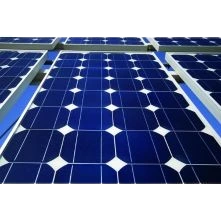Get A Quote
BIS Certification for Thin-Film Terrestrial Photovoltaic (PV) Modules IS 16077 : 2013

Thin-film PV modules have transformed the
solar energy landscape due to their efficiency, adaptability, and adherence to
global standards. In India, ensuring the safety and performance of these
modules is essential, which is why BIS registration is a mandatory requirement
for thin-film PV modules. This certification process falls under the Compulsory
Registration Scheme (CRS) administered by the Bureau of Indian Standards (BIS).
It ensures that PV modules comply with strict safety and operational
benchmarks.
By adhering to the Indian Standard for
Thin-Film PV Modules (IS 16077: 2013) as well as relevant IEC standards,
manufacturers can enhance their market credibility, build consumer trust, and
ensure product reliability.
Introduction to CRS Certification for Thin-Film PV Modules
BIS certification for thin-film PV modules is
mandatory in India complying with the Indian standard IS 16077:
2013 to ensure safety and performance standards established by the Bureau
of Indian Standards (BIS). This certification is crucial for promoting consumer
safety and confidence in solar products. The process involves a thorough
evaluation of technical specifications and electrical safety. By securing CRS certification, manufacturers affirm their dedication to producing high-quality,
reliable products that comply with national regulations, enhancing product
credibility and facilitating market access.
Importance of BIS CRS for Thin-Film PV Modules
BIS CRS for Thin-Film PV Modules plays a crucial role in ensuring safety, efficiency, and regulatory adherence. Here’s why obtaining BIS certification is essential:
Ensures Electrical Safety: Protection against hazards such as electric shocks and short circuits.
Enhances Performance Reliability: Guarantees efficiency in energy conversion and long-term operational stability.
Builds Consumer Trust: Compliance reassures buyers about product safety and durability.
Regulatory Compliance: Mandatory for manufacturers to enter and operate in the Indian market.
Competitive Advantage: Enhances brand reputation and market acceptance.
Overview of Indian Standard IS 16077: 2013 and IEC Standards for Thin-Film PV Modules
The Indian Standard for Thin-Film PV Modules (IS 16077: 2013) aligns with international IEC standards, ensuring modules meet strict safety and performance criteria. These standards cover:
Electrical Safety: Protection against electric shocks, short circuits, and insulation failures.
Performance Evaluation: Assessment of energy output, efficiency, and operational stability.
Thermal Management: Testing modules for heat resistance and prevention of overheating.
Mechanical Durability: Verifying resistance to mechanical stress from wind, snow, and other external factors.
Environmental Compatibility: Testing for operation under varied climatic conditions.
Electromagnetic Compatibility (EMC): Ensuring no interference with other electronic devices.
BIS Registration Process for Thin-Film PV Modules
The BIS registration process differs slightly for domestic and foreign manufacturers but broadly follows these steps:
For Foreign Manufacturers:
- Nominate an Indian Representative: A foreign manufacturer must appoint an Indian Representative with a valid business presence in India to handle the registration process for FMCS Certification.
- Online Application Submission: The representative submits an application via the BIS portal, ensuring all details are accurate.
- Sample Testing: Thin-Film PV Modules samples are tested in a BIS-approved laboratory for compliance with IS 16077: 2013.
- Submit Complete Application: The application, along with test reports and required documents, is submitted online or in hard copy.
- BIS Verification: The BIS reviews documents and may conduct factory inspections.
- Grant of License: Upon successful verification, the BIS grants a license, allowing the use of the CRS mark.
For Domestic Manufacturers:
- Submit Online Application: Domestic manufacturers directly apply on the BIS portal to begin the registration process.
- Sample Testing: Like foreign manufacturers, samples are tested at a BIS-recognized lab.
- Submit Application: A complete application, including test reports, is submitted to the BIS.
- Verification: The BIS reviews documents and may inspect the manufacturing facility.
- License Grant: After successful verification, the BIS issues a license for using the CRS mark.
Documents Required for BIS Certification
Below is a comprehensive checklist of documents needed for BIS registration:
General Documents:
● Filled CDF/CCL forms.
● BIS application form.
● Business License (original + English translation).
● Scope of Business License (original + English translation).
● ISO Certification of the manufacturing unit.
● Product marking label details.
Additional Documents for Foreign Manufacturers:
● Authorization letter (if the signatory isn’t the manufacturing head).
● Trademark certificate.
● Indian Representative's registration proof.
● Photo ID of the authorized representative.
Technical Documents:
● User manual or technical specification sheet.
● Test reports from BIS-approved laboratories.
Conclusion
Navigating the complexities of BIS CRS for
thin-film PV modules requires expert guidance to ensure smooth compliance.
Partnering with experienced regulatory consultants, such as EVTL India, can
simplify the process, from document preparation to certification approval.
By securing BIS registration for thin-film PV
modules, manufacturers can enhance product credibility, ensure compliance with
Indian standards for thin-film PV modules, and gain a competitive edge in the
expanding Indian solar market.
Ensure that your solar products meet the
highest safety and quality standards with expert support, allowing you to
confidently contribute to India’s sustainable energy future.
Free Call Back
Latest News & Update
🚀 Breaking News: New software update available for all users!
💡 Latest Feature: Introducing AI-powered automation tools.
📅 Upcoming Event: Join us for the webinar on September 30th.
🕒 Support Hours: Expanded customer support hours next week.
⚙️ Tech Tip: Learn how to maximize productivity with our latest tools.
Why Choose EVTL INDIA
Expertise in Indian Regulatory Standards
End-to-End Support
Trusted by Top Indian & Global Brands
Fast Processing & Transparent Pricing
Strong Liaison with Indian Authorities
Company Profile














